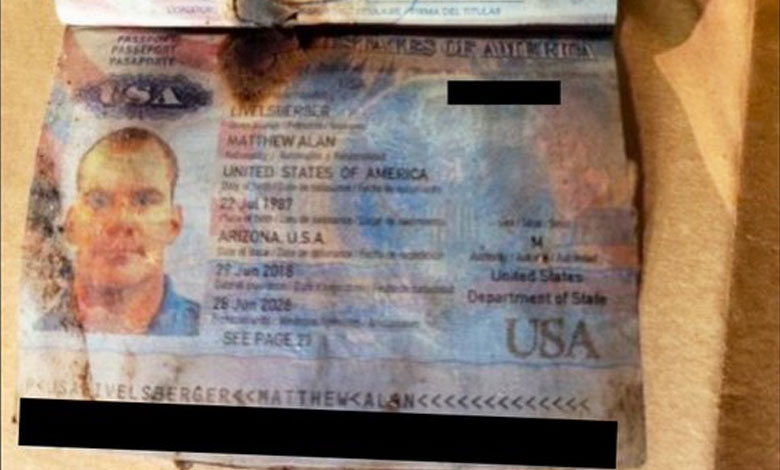Soldier Who Died by Suicide in Las Vegas Confided Struggles with Pain and Exhaustion after Afghanistan Deployment
A highly decorated Special Forces soldier, Matthew Livelsberger, who tragically died by suicide in a Cybertruck explosion on New Year's Day, had confided to a former girlfriend about the significant pain and exhaustion he endured following his deployment in Afghanistan.

Washington: A highly decorated Special Forces soldier, Matthew Livelsberger, who tragically died by suicide in a Cybertruck explosion on New Year’s Day, had confided to a former girlfriend about the significant pain and exhaustion he endured following his deployment in Afghanistan. These symptoms, which were indicative of traumatic brain injury (TBI), played a key role in his mental and emotional distress.
Background of Matthew Livelsberger’s Service
Livelsberger, 37, was a Green Beret who had an exemplary military career, receiving five Bronze Stars, including one with a “V” device for valor under fire. He had a global service record and a newborn baby, but struggled with the mental and physical toll of his service. His experience involved both taking lives and witnessing the deaths of fellow soldiers. Livelsberger bore these burdens privately, recently seeking treatment for depression from the Army, a U.S. official revealed.
Relationship with Former Girlfriend and Confessions about Struggles
Livelsberger found solace in Alicia Arritt, a former Army nurse, who he began dating in 2018. Arritt had served at Landstul Regional Medical Centre in Germany, where she treated soldiers who had suffered severe combat injuries, including traumatic brain injuries caused by bombs and fire. These injuries, while serious, are often difficult to diagnose and can have lingering effects that may not surface immediately.
During their relationship, Livelsberger shared text messages and images that revealed the internal battles he faced. He mentioned concussions from his deployment to Helmand Province in Afghanistan, showing a tattoo of two skulls pierced by bullets as a symbol of the lives he had taken. He spoke of constant exhaustion, pain, and difficulty sleeping, all signs of TBI.
Also Read: Myanmar to Release Over 6,000 Prisoners to Mark Independence Day
“My life has been a personal hell for the last year,” Livelsberger told Arritt during the early days of their dating, according to text messages she provided.
Final Messages and Intentions Behind Suicide
On January 1, Las Vegas law enforcement officers revealed excerpts from messages Livelsberger left behind, confirming that his suicide was intentional. It was meant as a “wake-up call” and to “cleanse the demons” from losing fellow soldiers and taking lives.
The manner in which he chose to take his life—via a Cybertruck in front of the Trump Hotel—raised questions about whether it was an act of political violence. However, officials confirmed that Livelsberger did not harbor ill will toward President-elect Donald Trump, and Arritt mentioned that both she and Livelsberger were fans of Tesla vehicles.
Struggles with Mental Health and Lack of Support
Arritt, who had observed Livelsberger’s struggles with depression and memory loss since 2018, believes the military failed to provide adequate help for him. Despite their shared bond and her encouragement for him to seek help, Livelsberger was reluctant to seek treatment due to the stigma surrounding mental health within the Special Forces community. He feared that seeking treatment might cost him his ability to deploy, as he believed that mental health was viewed as a weakness in his unit.
Pentagon’s Response and Encouragement for Mental Health Support
The Pentagon has turned over all of Livelsberger’s medical records to local law enforcement and continues to encourage troops facing mental health challenges to reach out for support. Pentagon Deputy Press Secretary Sabrina Singh urged service members to utilize available mental health services, either on or off base.
Livelsberger’s story highlights the mental health struggles that many veterans face, and the importance of addressing the stigma surrounding seeking help for mental health issues in the military.
